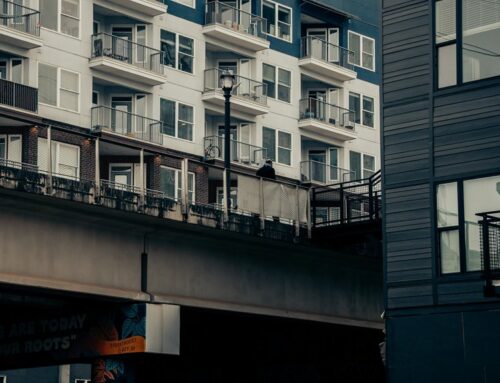Buying vacant properties can be a lucrative opportunity, whether for personal use or investment. Vacant properties, often sold at a discount due to their condition or the seller’s desire to offload quickly, come with potential for high returns, but they also have unique risks. Here, we’ll look at the benefits and challenges of buying vacant properties to help you make an informed decision.
Benefits of Buying Vacant Properties
1. Lower Purchase Price
One of the main attractions of buying vacant properties is the typically lower purchase price. Many sellers are eager to get these properties off their hands quickly, resulting in opportunities for buyers to negotiate a better deal.
- Investment Opportunity: If you’re an investor, a low purchase price provides greater room for potential profit once you restore and sell or rent the property.
- More Affordable for First-Time Buyers: For first-time homebuyers or those with smaller budgets, vacant properties offer a way to enter the real estate market at a lower price point.
2. Flexible Options for Customization
Since vacant properties are often stripped down or need repairs, buyers have more flexibility to customize the home to their taste.
- Personalization: You can remodel, renovate, and redesign the property according to your own preferences and needs.
- Add Value: By upgrading or adding modern features, you can increase the property’s market value significantly, turning it into a high-return investment.
3. Quick Purchase Process
Vacant properties can often be purchased and closed on faster than occupied ones, as there are no tenants or residents to manage, and many sellers are motivated to close quickly.
- Ideal for Investors: The fast process allows investors to acquire and prepare properties for resale or rental faster, accelerating their return on investment.
- Reduced Hassle: Without the need to negotiate move-out dates or handle tenant issues, the process can be smoother and more straightforward.
4. Higher Rental Income Potential
When renovated, vacant properties can be lucrative rental properties. Many vacant properties are located in up-and-coming areas or places with growing rental demand, making them ideal for rental investments.
- Lower Competition: With less competition in the vacant property market, investors may find it easier to secure a good deal.
- Long-Term Income: Once improved, these properties can yield steady rental income, offering a dependable cash flow stream over time.
Risks of Buying Vacant Properties
1. Potential for Property Damage
Vacant properties are more susceptible to damage from natural elements, vandalism, and neglect. This can lead to costly repairs and potential setbacks during renovation.
- Weather Damage: Exposure to extreme temperatures, rain, or snow can deteriorate a property over time, particularly if there are existing leaks or weaknesses.
- Vandalism or Theft: Empty properties may attract vandals or thieves who cause property damage or steal valuable materials like copper pipes or appliances.
2. Unexpected Repair Costs
Vacant properties often require repairs, and some may need significant renovations. Buyers may encounter unexpected repair costs once the property is fully inspected or during renovation.
- Structural Issues: Many vacant properties suffer from structural issues like foundation cracks, roof damage, or plumbing problems, which can be costly to repair.
- Hidden Problems: Some issues, such as mold, asbestos, or pest infestations, may not be immediately visible and can add to the repair costs once discovered.
3. Zoning and Permit Challenges
Depending on the property’s location and intended use, zoning restrictions and permits may become obstacles when renovating or changing the use of the vacant property.
- Zoning Regulations: Properties in specific zoning areas may face restrictions on modifications, which can be a hurdle if you plan to add certain features or change the property’s use.
- Permit Requirements: Some areas require permits for even minor repairs or modifications, adding extra costs and delays to your timeline.
4. Potential for Decreased Property Value
Vacant properties are sometimes located in neighborhoods with fluctuating property values, making it essential to thoroughly research the area’s long-term potential.
- Market Volatility: Economic downturns or changing neighborhood demographics may lead to a decrease in property value, affecting your return on investment.
- Appraisal Issues: Some vacant properties may appraise for lower than expected, particularly if there are foreclosures nearby, impacting your resale value and future refinancing options.
5. Maintenance and Upkeep Costs
Even if you don’t plan to live in or renovate the property immediately, maintaining it is crucial. Vacant properties can deteriorate quickly, and the costs to keep them secure and in good shape can add up.
- Security: Investing in security features to protect the property from break-ins is often necessary, especially in high-crime areas.
- Landscaping and Basic Maintenance: Regular maintenance to avoid fines from local authorities for neglect can be another added cost for vacant property owners.
Conclusion
Buying a vacant property offers unique advantages, from lower costs to customization flexibility, but it also comes with distinct risks like unexpected repairs, security challenges, and zoning restrictions. For those willing to put in the work, vacant properties can provide a solid return on investment, whether you plan to flip, rent, or occupy them. However, thorough research, professional inspection, and an honest assessment of costs and time are essential to making a profitable decision.
FAQs
1. Is buying a vacant property a good investment?
Yes, it can be a good investment if you’re prepared for potential repairs and understand the risks involved. Vacant properties are often priced lower, making them affordable options for investors seeking properties to flip, rent, or remodel.
2. What are the main risks of buying a vacant property?
The main risks include potential property damage, unexpected repair costs, zoning restrictions, and fluctuating property values. Additionally, securing and maintaining a vacant property until it’s ready for use or resale can add to the costs.
3. How can I minimize repair costs when buying a vacant property?
Conduct a professional inspection before purchase to identify any hidden issues, create a renovation budget, and prioritize essential repairs. Working with a reliable contractor and getting multiple quotes can also help control costs.
4. Are there financing options for buying vacant properties?
Financing for vacant properties is available but may come with more restrictions compared to traditional homes. Some lenders may view vacant properties as higher-risk investments, so it’s essential to discuss options with a lender familiar with such properties.
5. How can I find vacant properties to buy?
Vacant properties are often listed on real estate websites, auction sites, and through bank-owned property listings. You can also work with local real estate agents specializing in distressed or vacant properties for additional options.











